technological innovation
Medical Technology News Focus CVC
Central Venous Catheter
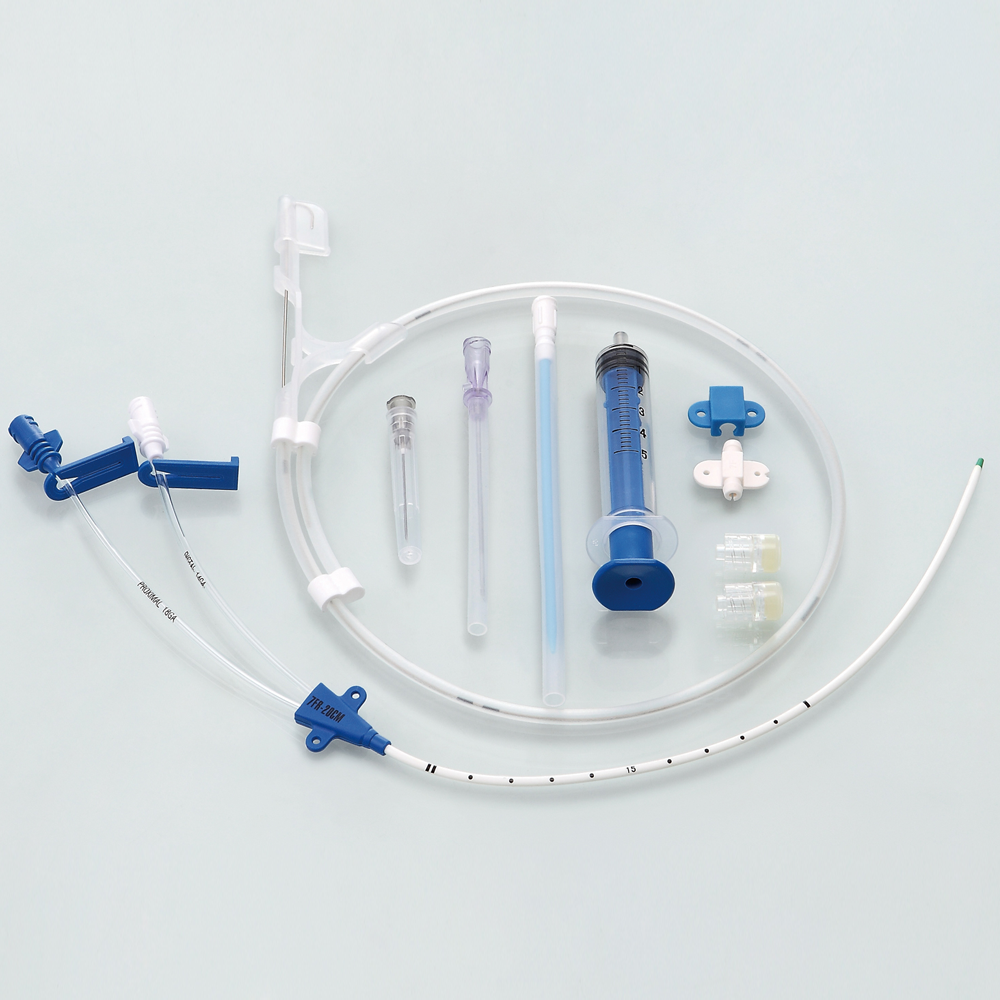
Intended use
Continous or intermit venous treatment.
Infusion of liquid or blood
Monitoring of the CVP
Frequent blood draws
Parenteral nutrition
infuse irritative liquid.
multi lumen for different drugs,those may be interacted.
Applications
麻醉科(OR)
重症监护室(ICU)
肿瘤科(Oncology)
急诊科(Emergency)
普外科(Surgery)
神经内科(Nerve)
血液科(Hemocology)
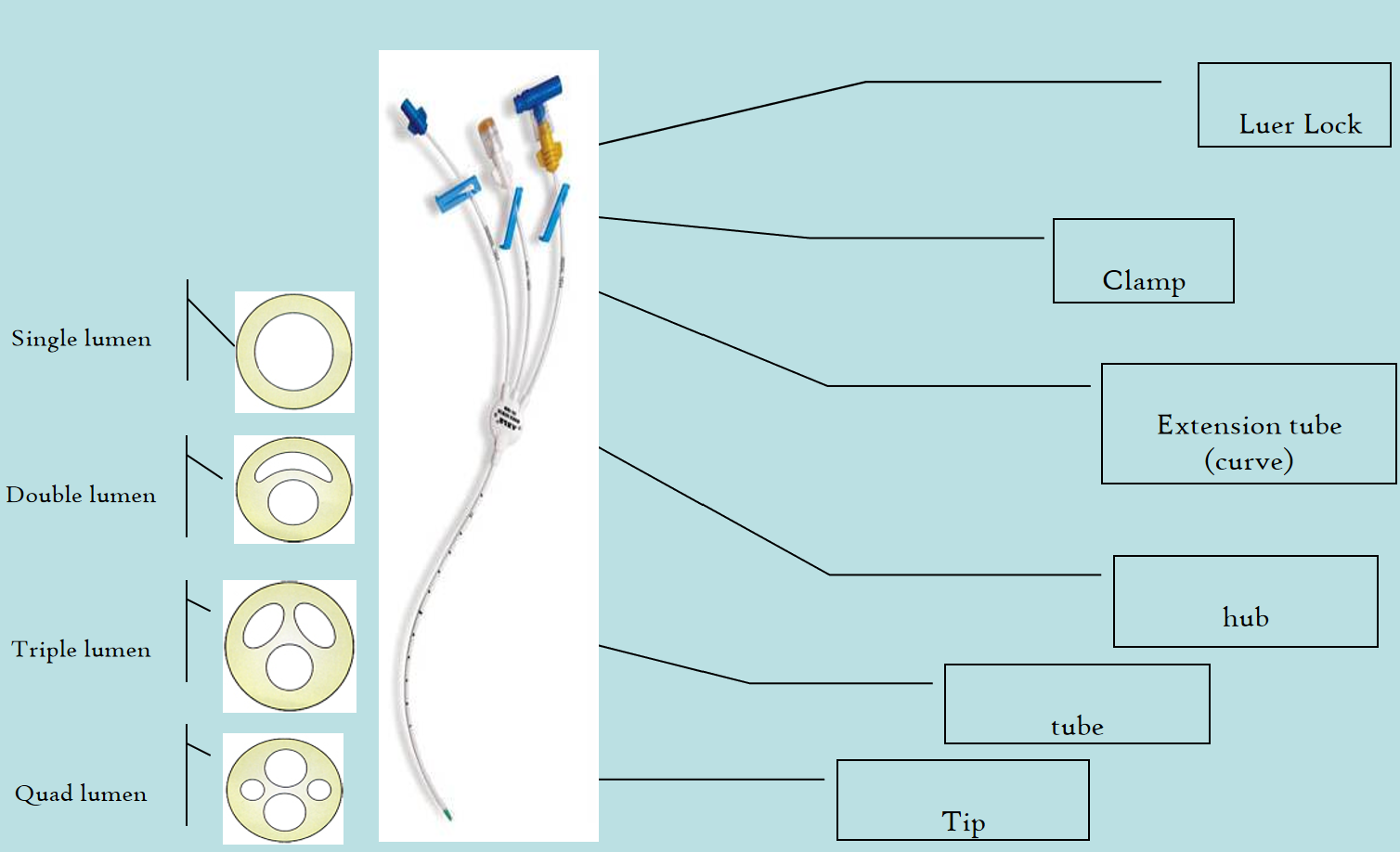
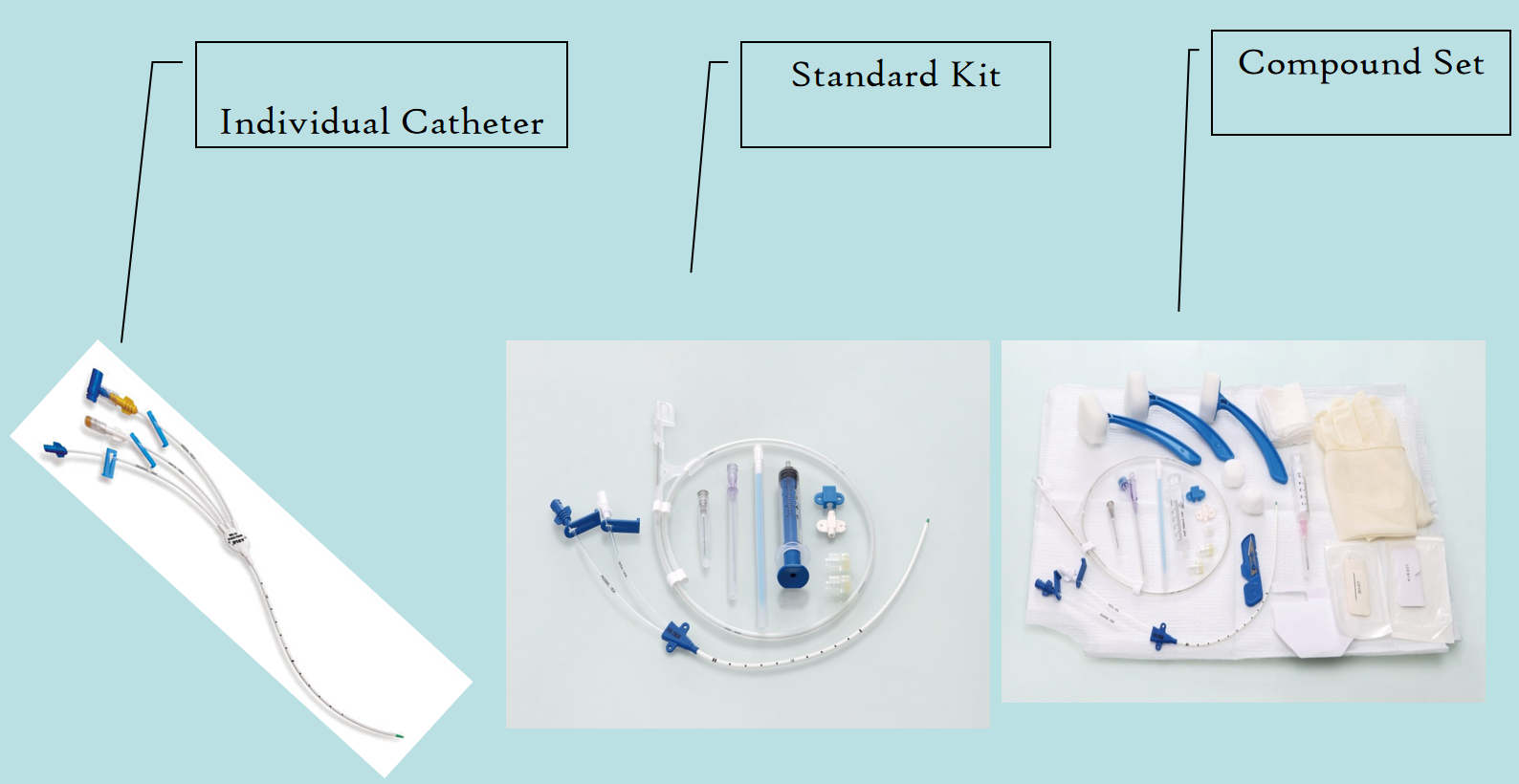
Configuration
Central Venous Catheter
Guidewire with advancer
Syringe
Introducer needle
Tissue dilator
Injection cap
Injection needle
Fastener
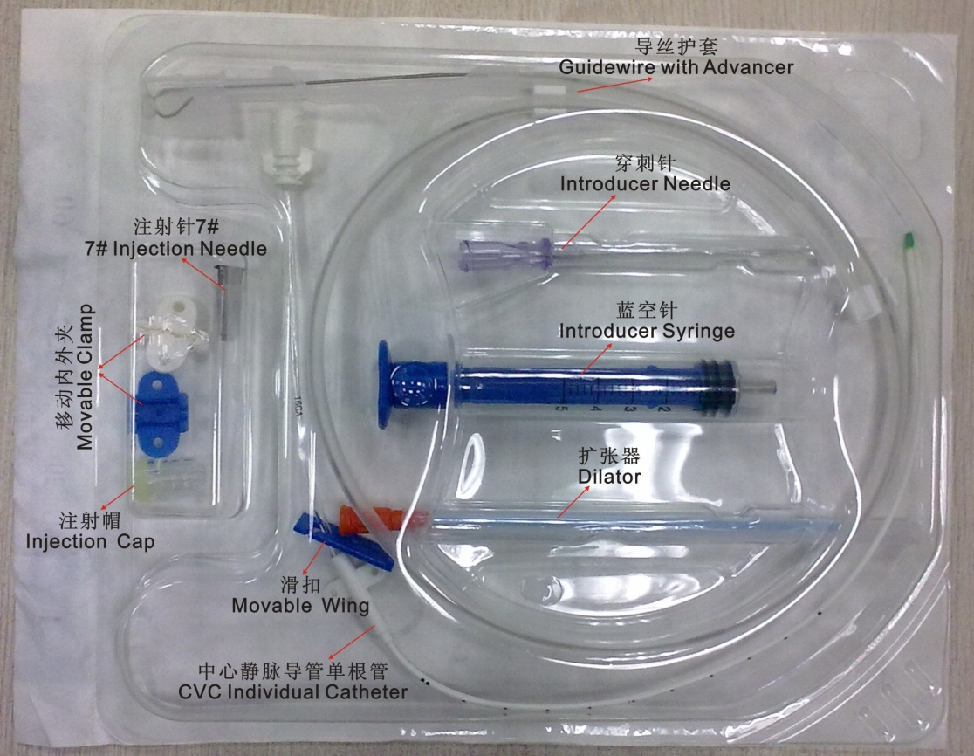
Features
soft tip----melted with tube, no migrate, the tender and soft tip minimize the trauma to vascular vessel.
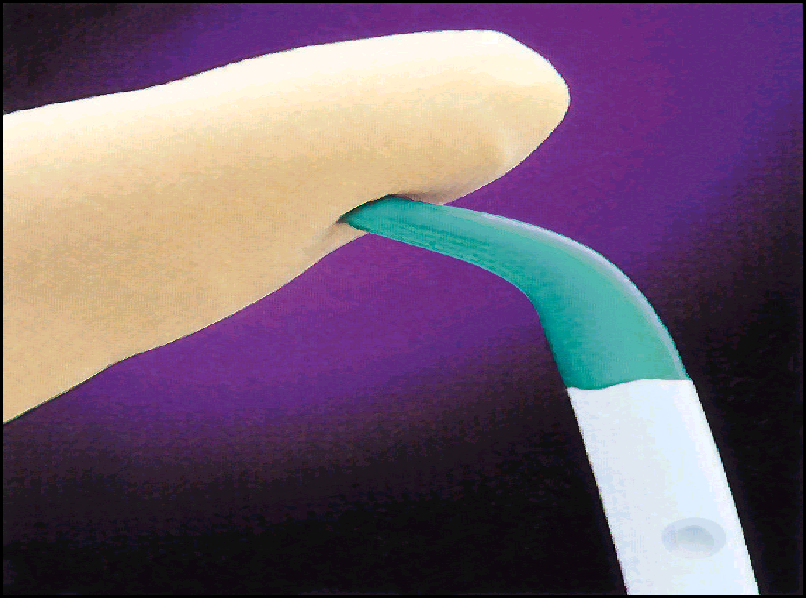
Material of tube-PU(Medical grade Polyurethane)
Features:
1. soft and elasticity,after insertion into body, it will become soft of 50% under body temperature(37°C).
form according to the form of blood vesel, reduce the trauma and anti-kink.
2. tube is smooth to avoid the thrombosis。
3. marking of scale eanable physcians to insert the catheter according to the length。
4. The radiopaque tube and tip facilitate catheter location when visualized by X-Ray.
*Tube vessel is thin,and smooth, there are very limited impact on the blood flow.
Special PU material
1.the thrombosis can not occur
2.irritation of blood vessel is rare
*Round hub can reduce the friction between tube and skin, make patients more comfortable.
*Luer Lock—international standard,Suitable for all connector。
*Extension Tube—made from PU,inside of the tube is smooth and elastic. good for clamping and pressure tranfering.
*Clamp—made from medical grade PP. It's elastic and anti-kink,and suitable for frequently moved, and avoid airbubble.
fixation wing made from PP or siliconed rubber.
Introducer needle—18 Ga straight or Y-shape needle;inside of needle is thin,
available valve to avoid air entering or blood leaked.needle is sharp and smooth inside enable the guidewire pass smoothly.
the arrow mark on the needle hub indicate the direction of insertion of needle and guidewire.
End of hollow syringes for insertion of guidewire——To avoid airbubble and blood leak

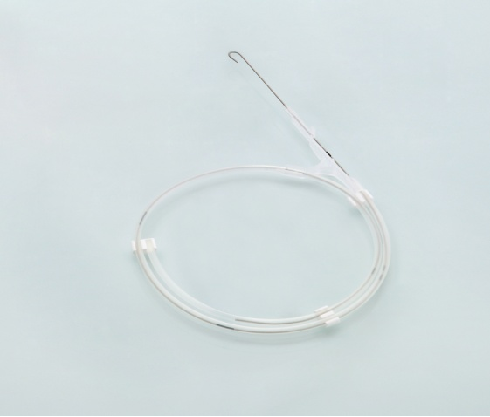
Guidewire—0.018“~0.035" diameter,J tip (two ends are soft),surface is smooth with good elasticity and scale marking,
which is easy to monitor the depth of insertion. Guidewire, introducer needle and dilator are easily work together
Guidewire advancer—work with guidewire flexibly,
Guidewire advancer is designed according to somatology, available lock to avoid drawing back of guidewire
J shape and soft tip,
can avoid trauma to blood vessel.
bulge--
make insertion guidewire easier.
Dilator: good elasticity,moderate hardness,smooth inside and outside,good compability with guidewire .
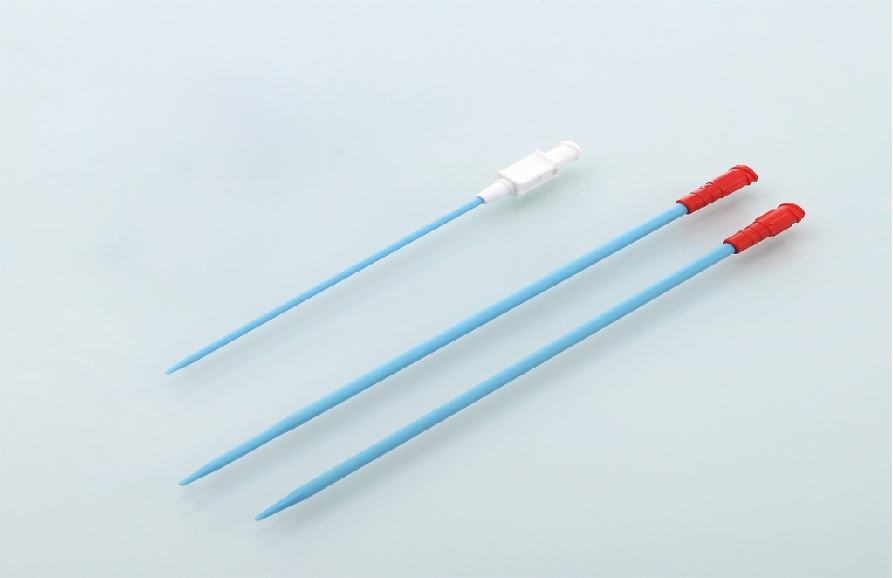
Specification
Normal specification
Adult: Single Lumen(14Ga, 16Ga)
Double Lumen(7Fr, 8Fr)
Triple Lumen(7Fr)
Quad Lumen(8.5Fr)
Child: Single Lumen(18Ga)
Double Lumen(4Fr, 5Fr)
Triple Lumen(4.5Fr, 5.5Fr)
Infant: Single Lumen(20Ga, 22Ga)
L: 5,8,13,16,20cm or customerized ranges from 5 to 30cm.
Clinical use
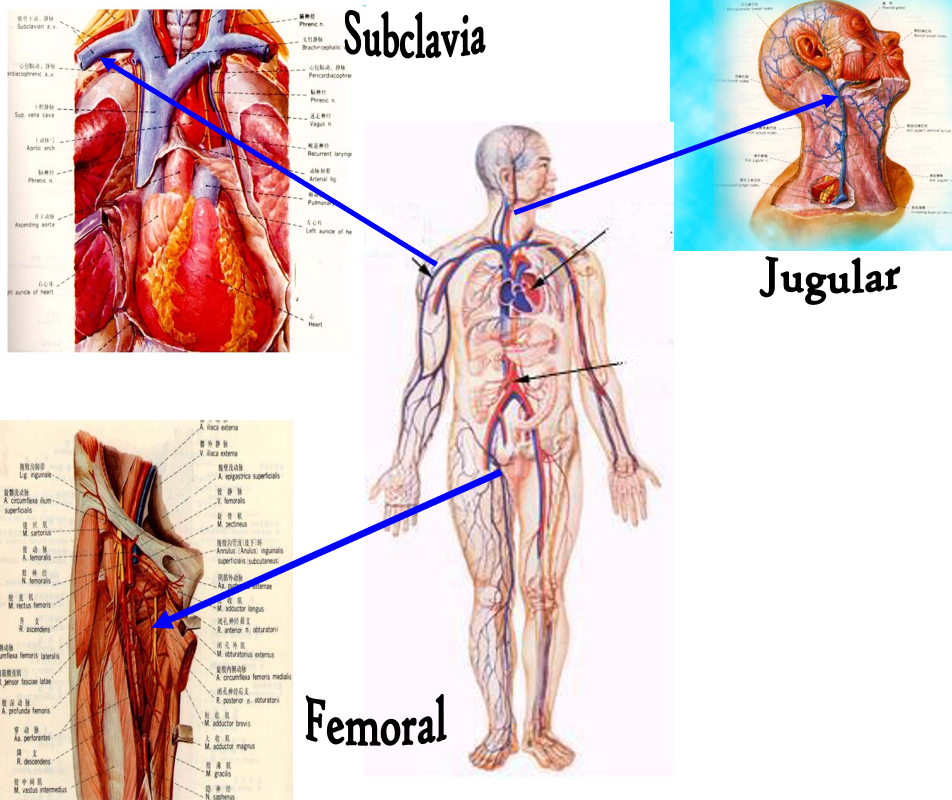
Three puncture sites
1. Jugular
2.Subclavia
3.Femora
compared | femoral | Jugular | subclavia |
operation | Easiest | high tech | easy |
complication | Raw and slight | Possible and fatal | Low possibility |
remaining time | One week, additional care needed after one week. | 3-4 weeks | 3-4 weeks |
body position | supine position (except heart failure and difficult breathing) | Head down position | Head down position |
activities | inconvenient | convenient | Head moving is limited. |
blood flow | Good blood flow rate, depend on the position of insertion. | Good blood flow rate | Good blood flow rate |
blood flow and difficulty | Lack of long term observation, used for short term. Embolism’s possibility is low. | Embolism’s possibility is high. Operation is un easy | Embolism’s possibility is low. Operation is easy. |
catheterization procedure
1) Place the patient in a trendelenberg position (15 to 30 degrees head down) to reduce the chance of an air embolism,
turn the patient’s head to the side contralateral to the site chosen.
2) mark puncture site
3) Anesthetize the spot by using needle, the angle between needle and skin shall be 30 to 45 degrees.
4) when a flush of blood returns by advancing the needle, insert venous needle.
Remarks: pay attention to the direction of needle and color of blood
returns during advancing seeker needle , meanwhile, pay attention to
the direction of needle and depth of puncturing needle , the bevel of
needle shall be faceup.
5) one hand hold the needle,another hand hold the syringe ,keep the pressure negative during the slow insertion.
When you feel the needle placed into the vein, the blood will return smoothly.
6) Guidewire will be inserted through Y shaped syringe or hollow syringe.
Remarks: during the insertion of guidewire,please judge the resistence , don't withdraw
the guidewire by force, withdraw the guidewire together with syringe if ncessary.
7) withdraw syringe, and insert dilator by 1-2 cm under the skin for enlarge the track.
Remarks: During insertion of dilator, attention shall be paid to the direction and the force of dilator,
specially the force transfering between dilator and guidewire, the driving force shall be increased gradually
Withdraw the dilator, implant the catheter from the end of guidewire, and saline shall be injected into to the catheter immediately.
Ensure the whole catheter implanted completely and then fixed the catheter at the final position.
Connect with other tubes and devices
The force for inserting the catheter is related to enlarging of the track, if the resistence is big, the length of each insertion shall be shorter ,
and attetion shall be paid to avoid kink of guidewire.
Kink of guidewire due to improper operation
1. kink occurs within 5cm of insertion: the normal cause is incomplete insertion of bevel of needle into vein .
2. Kink occurs between 5 cm and 10 cm of insertion: the normal cause is the incorrect insertion of needle,
which is inserted into small vein or muscle instead of vascular vein the reason is dislocation of spot and improper angle of puncturing.
80% of kink issues belong to this case.
3. The kink occur between 10 cm to 15 cm, the reason is that the force of driving guidewire and enlarging force of dilator is too
4. Kink rarely occurs after 15 cm insertion.
The factors and measures
General infections caused by catheter itself, such as: not follow Non-bacterial operation strictly. Nutrition liquid,
the contact between catheter and skin of exit site, overtime exposure of catheter. Germiculture for tip of catheter
shall be conducted if necessary, glove shall be used during the insertion and care.
Nursing care
The factors cause blockage of catheter :
1. mechanical factors
2. non-embolism factors
①continuous infusion , the change of body position cause return of blood.
② infusion of blood products in case of part of catheter blocked ,accumulated Fibrin make lumens smaller, even complete blockage.
3. patients’ factor: blood viscosity increase 、blood stasis in vein, return of blood, overtime of measurement of CVP,
increase of intracranial pressure. Frequent vomit ,cough and hiccup.
4. Catheter’s factors
5 . the choose of puncturing site
Embolism factors: trauma、irritation or other pathological factors change the vessel of vein.
types: ①Fibrous sheath: fiber gathers on the surface of catheter, sheath is formed at the end of catheter
②Fibrous valves: fiber gathers at the end of catheter ,one way valve is formed, which allow liquid infusion and prohibit return of fluid.
③vessel attached embolism: the fiber at the damage of vessel gathered surface of catheter.
④embolus in catheter :embolus formed inside of catheter, and block the holes.
Leakage of hollow syringe :
There is difference between front end of hollow syringe and the taper of hub of needle.
The connection between front end of hollow syringe and the hub of needle is not firmed.
There is difference between handspike's rubber and Cylinder.
Leakage of catheter
Defective material (outsourcing).
Technics of each part’s connection.
Physical damages to catheter during the operation.
Infuse hyperosmotic and corrosive medicine.
Insufficient flow rate:
The inside surface of catheter may not smooth or with flash.
Lumen side become narrow because of over indwelling time and lost of heparin.
The puncture site not match the length of catheter
The side holes was touched by Venous valve( femoral)
Infection(infection caused by multi factors)
![]()
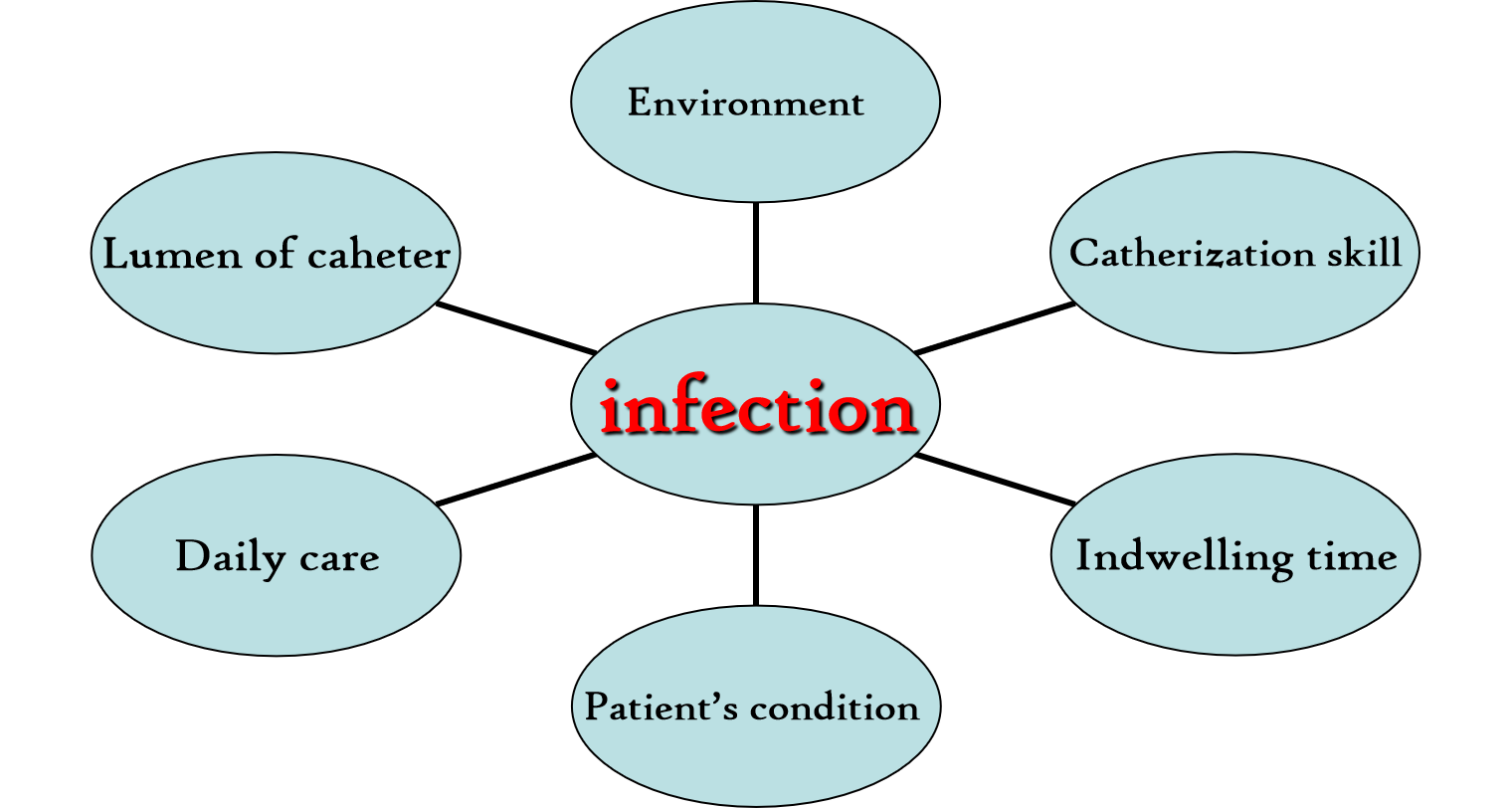
When you have any question about the products, please inquiry to us with the details and quantity.
Our Email is sales@huafengmedical.com
Whatsapp is +86 13806476056
WELCOME!!!
RELATED NEWS
- Hemodialysis 2024-10-16
CATEGORIES
LATEST NEWS
CONTACT US
Contact: Ms Sun Huaxing
Phone: +86 13806476056
E-mail: sales@huafengmedical.com
Whatsapp:+86 13806476056
Add: Room101,Bld 13,No.869 Huaguan Road,Qingdao China
